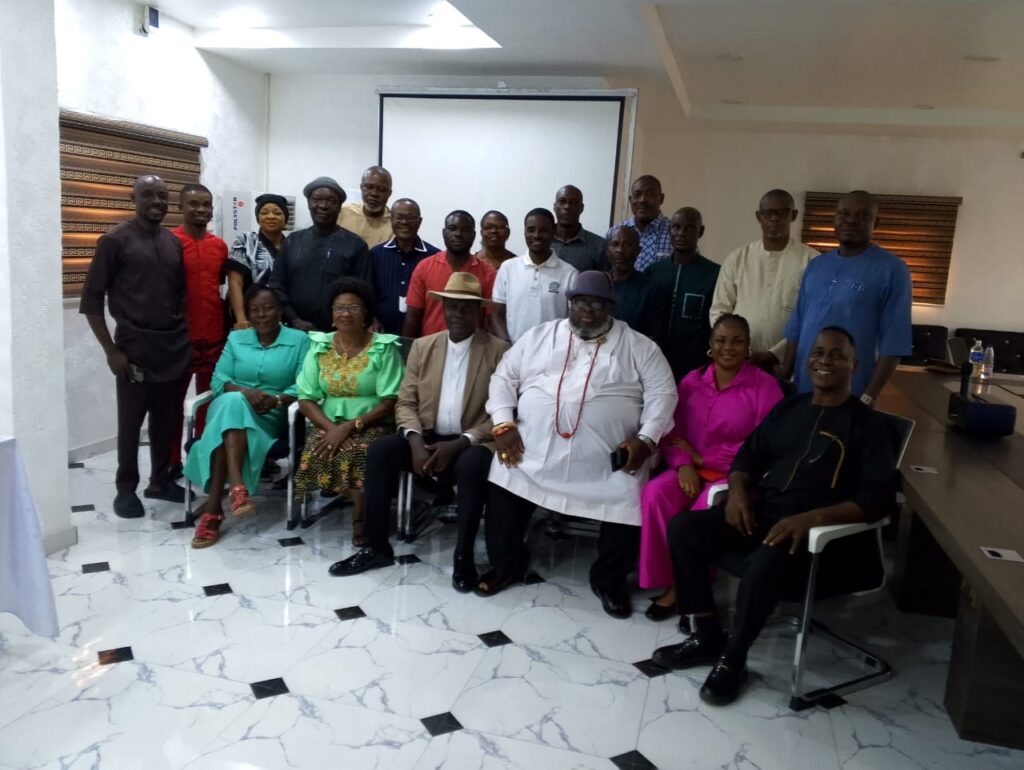His Royal Highness Theophilus Moses, Alternate Chairman of the Committee supporting the implementation of the Petroleum Industry Act (PIA) in the Niger Delta, has stated that the committee was set up to chart a path for more effective implementation of the Act as it concerns host communities.
Speaking in Yenagoa during a Multi-Stakeholder Platform (MSP) meeting organized by the Foundation for Partnership Initiatives in the Niger Delta (PIND), Moses who also represented KEFFESO Host Community Development Trust said the gathering brought together representatives of various community trusts to critically assess the PIA and recommend better implementation strategies.
He expressed concern that many members of the various boards involved in the PIA lack proper understanding of the Act. According to him, consistent training and awareness programmes are essential to help these individuals fulfill their roles effectively.
Explaining the essence of the 20-member committee, Moses said it was created to examine the PIA thoroughly and recommend strategic plans for achieving the desired development in the communities. He noted that some issues had emerged regarding the Act’s operations and that the committee had initiated an advocacy drive to engage with settlors, the Nigerian Upstream Petroleum Regulatory Commission (NUPRC), and the state government to ensure equitable dialogue and resolution.
He highlighted the knowledge gap as a major challenge, pointing out that many nominees to the Board of Trustees, Management Committee, and Advisory Committee do not have the prerequisite knowledge to function efficiently. He said KEFFESO Trust, in particular, identified the need for gap assessments and capacity-building efforts to address this.
“It is only through training and creating awareness that the community representatives will understand how the PIA works,” Moses emphasized.
Also speaking at the event, Torki Dauseye, Executive Director of the Family Welfare Foundation and lead convener of the meeting, noted that similar committees had been set up in five Niger Delta states to determine the best modalities for PIA implementation.
He explained that the project, tagged “Bridge Project,” is operational in Ondo, Delta, Bayelsa, Rivers, and Akwa Ibom States. According to him, the committee will work with all host community trusts approved by NUPRC, beginning with a mapping and validation exercise, followed by capacity building and sensitization to optimize the trusts’ functions.
“The purpose of the committee is to identify challenges and develop solutions. This is why we are creating an advocacy committee—to gather issues, build advocacy plans, and engage relevant stakeholders for solutions,” he stated.
Elizabeth Egbe, another committee member and representative of Bayelsa Women Inclusion on PIA, said bringing together civil society groups, host communities, and settlors would help improve communication and facilitate smoother PIA implementation.
She urged oil companies (settlors) to attend such meetings to hear directly from the host communities. According to her, many of the issues being encountered stem from inadequate consultations during the setup of the trusts.
“The constitution being used by some trusts was drafted solely by the settlors. That’s not acceptable. You can’t impose a constitution on a host community and expect smooth operations,” Egbe said.
She called for a win-win approach for all stakeholders, the settlors, the host communities, and all three segments of the trust structure outlined in the PIA. She expressed hope that oil companies would be more open to dialogue moving forward.















